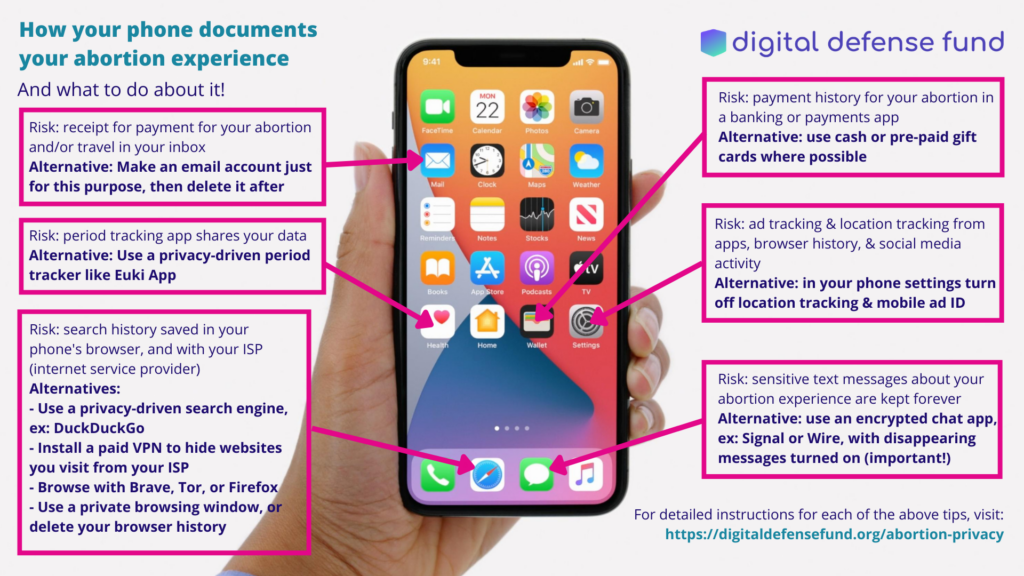Now that Roe v. Wade is likely to fall, we all have to think carefully about electronic privacy and abortion. Big Tech is already tracking everything you do. The data they steal from you can easily be used to find out whether you (for biological females) or your partner (for biological males) is pregnant.
The Digital Defense Fund (DDF) has created a “Guide to Abortion Privacy” showing how to maintain your reproductive privacy. The DDF guide is focused on phone privacy, but similar principles apply to computer privacy; make sure your laptop is as secure as your phone.
DDF also provides a poster and an infographic about abortion privacy. DDF appears to give permission to repost these graphics freely, so I’ll include the infographic below. (Image alt text can be found here.)

Actually, anyone wanting to maintain online privacy should study these guides. We live in a world where increasingly individual behavior is subject to outside control. Big Tech wants to control your behavior as a consumer. The Religious Right want to control your religion, gender, sexual orientation, and pregnancy. Big Business wants to control your ability to organize for better working conditions. And so on…. If you want to retain some small amount of control over your life, you need to do whatever you can to maintain your online privacy.
